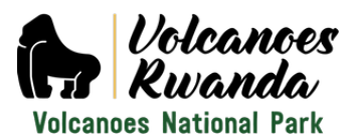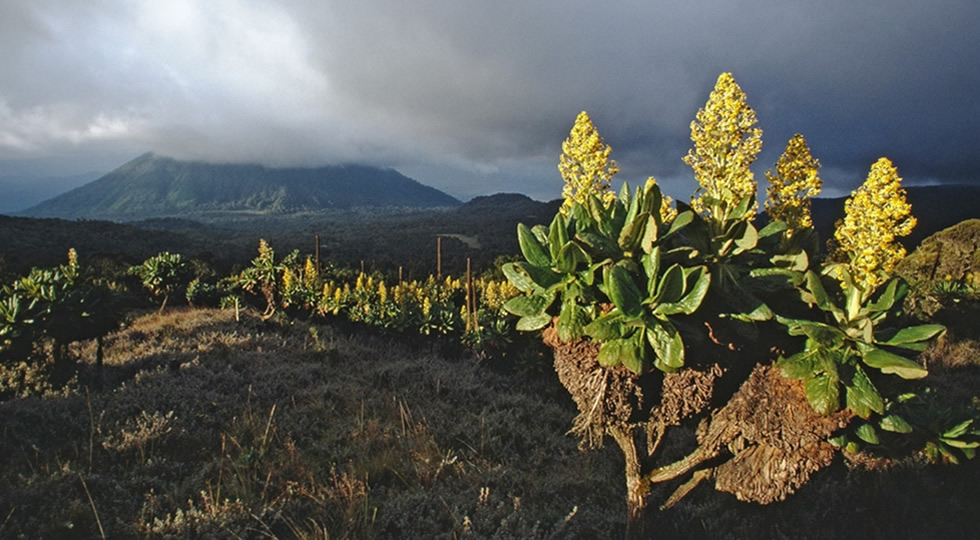Rwanda is a landlocked country situated in Central Africa, bordered to the North by Uganda, to the East by Tanzania, by Burundi to the South and by the Democratic Republic of Congo to the West.
Quick Guide to Rwanda
Information about Rwanda
Rwanda as a country is neighboring Burundi, Tanzania and Uganda. Rwanda’s country population is about 6.67 million. Rwanda is considered to be a twin state with Burundi since they are close neighbors in the northern part and historical back ground as well as culture similarities. Rwanda’s has the highest average population density of a bout 253 people per its square kilometer compared to other African countries.
General Information
| Time: | GMT + 2 hours |
| Weather | Rainy seasons: mid-February to mid-June, mid-September to mid-December Dry seasons: mid-June to mid-September, mid-December to mid-February Average temperature: 24.6°C (76.3°F) – 27.6°C (81.7°F); hottest in August and September |
| Area Code | International country code: +250 |
Visas |
A free 90-day visa will be granted to citizens from the USA, the UK, Germany, Sweden, Can-ada, Hong Kong, South Africa, Mauritius, Kenya, Tanzania, Uganda, Burundi and the Demo-cratic Republic of Congo and all African countries can get there visa on arrival and free for one month. Other nationals are required to purchase a visa. The first option is to apply at a Rwandan embassy or diplomatic mission where processing is usually efficient and takes less than a week (frequently as little as two days). Costs are USD 60 plus a handling fee – please check for the exact amount on the respective website of the embassy or diplomatic mission. Alternatively, foreign nationals can fill an “entry facility document” online and then obtain a visa upon arrival at Kigali airport or an overland border post (please note that the entry facility document is mandatory and you can be refused entry into Rwanda if you do not carry such a document!). This costs USD 30, to be paid at the airport or border, and is valid for a single entry and 15 days. All information and the download link for the entry facility document itself are available at here. For stays of more than 15 days or for multiple entries, an additional 90-day visa can be obtained after arrival from the Immigration authorities in Kigali. The costs for this are RWF 25,000, i.e. a bit less than USD 50.Passports must be valid for at least 6 months beyond the date you plan to leave Rwanda. |
| Elecetricity | 230/240 volts at 50Hz Adapters/converters have to be brought as they are not readily available in all hotels. |
| Transport | Airport: Kigali International Airport, 7 km from the city center Public transport: Minibuses and taxis are available throughout all major cities. |
| Do’s & Dont’s | Handouts and donations: Please do not give anything to people you meet randomly – no sweets, cookies, empty water bottles, pens or even money – since this encourages a culture of begging and hassling. Our desire is to encourage a culture of entrepreneurship, service provision and targeted help rather than uncoordinated handouts. If you would like to make a donation (e.g. school toys, medicines etc), please talk to us prior, during or after your tour. We have created a variety of special funds and micro-credit opportunities for financial dona-tions. Environmental protection: Our company has a strong sustainability policy, and we encourage our guests to respect some basic rules. Upon arrival, your guide will provide you with an extensive briefing. Photography: It is generally permissible to take pictures – exceptions are military personnel and property as well as public buildings, such as the airport. But please do so in a sensitive and dignifying way. Children tend to enjoy photos. If in doubt regarding the comfort of someone you wish to photograph, ask your guide whether it is appropriate. |
| Vaccination | Yellow fever vaccination is required. You may be asked for an international health certificate at the border. Other vaccinations, such as hepatitis A/B, typhoid, meningococcal meningitis and rabies, as well as tetanus, diphtheria and polio are advisable but will depend on the design and duration of your trip. Visit your doctor at least 8 weeks before departure to arrange necessary vaccinations. |
| Malaria pre-vention: | It is recommended to take a prophylactic drug (seek professional advice to find the drug most appropriate for you) and prevent mosquito bites between dusk and dawn by using DEET-based insect-repellent and a bed net. |
| Useful items: | First-Aid Kit, sunscreen, contact lens fluid, sanitary pads / tampons, hand sanitizer and toilet paper |
| Travel health insurance: | Appropriate health insurance and insurance for the return transport are recommended. Re-member to carry the insurance card and policy details with you. |
| Hospitals in Kigali: | King Faisal: Kacyiru, Kigali Tel.: 582421/585397/582469, open 24 hours Ambulance: Monday to Friday 8am to 5pm (078-8690438), all other times (078-8530351) Polyclinique du Plateau: Boulevard de la Révolution, Nyarugenge, Kigali Tel.: 578767/572125, open 24 hours, consultations from 8am to 9:30pm |
Money
| Payment: | Bring enough cash for personal spending as credit cards and traveler’s checks are not widely accepted, and there are no ATM machines for international credit cards in the entire country. It is further important to know that new $50 or $100 bills (2006 or newer) result in the best ex-change rate, while older bills or smaller amounts result in worse exchange rates. |
| Currency & exchange rates (June 2014): | 1 Euro ~ 820 Rwandan Francs 1 US Dollar ~ 600 Rwandan Francs 1 British Pound ~1020 Rwandan Francs |
| Exchange fa-cilities: | New dawn associates Rwanda personnel can generally help with currency exchange throughout your trip. Forex bureaus and banks are available in Kigali and other major cities. |
Travel Planning
| Clothes: | Light clothing for the warm days and mild evenings and heavier clothing including solid walk-ing shoes for Volcanoes and Nyungwe National Parks are appropriate. A hat and sunglasses provide protection against the sun. A waterproof jacket may come in handy in the moist mountains or during the rainy season. Rwanda is a rather informal place. Microfiber pants and shirts are appropriate for most official visits. Dress clothes (suit coats etc) are not frequently required, unless you need to participate in a formal conference or business meeting. |
| Gorilla per-mits: | Gorilla trekking excursions must be planned far in advance as gorilla permits are limited. Please notify New dawn Associates Rwanda as early as possible if you would like to go trekking. |
Safety
| Security situation: | Rwanda is widely known as one of the safest and most stable countries in Africa. While you should take the usual precautions for petty theft and pickpockets, more serious crimes are very rare. It is generally safe – also for single women – to walk in the streets of Kigali and other major cities. Traveling in the rural areas is also unproblematic. Furthermore, it is always advisable to consult your country’s travel advisory, even though we desire to point out that there are far-reaching differences and not every country has equally positive descriptions of Rwanda’s security situation. A money belt or secure handbag is recommended to keep your money, passport and other important items safe. Avoid bringing expensive jewelry and other valuables. Hotels do not always provide safes. The police can be reached at 112 or 078-8311112/ 113/ 114. |
Geography of Rwanda
RWANDA is a small land locked country located in centre part of AFRICA sharing borders with UGANDA in the north, BURUNDI in the south, TANZANIA in the east and DRC in the west.
Location
The region in which RWANDA reside is commonly known as the great lakes region, Rwanda has a population of around 8.6 million implying that it’s the most populated country in Africa , its located between altitude of 1° south and 3° south of the equator and between 29°east and 31°east of the Greenwich meridian
Rwanda Features
Rwanda is commonly referred as country of thousand hills because of it’s beautiful scenery (natural beautiful of the landscape) its well known for having mountain gorillas which are not common almost on the continent of Africa, not forgetting that recently it was found that it is the source of the longest river in Africa (River NILE)
Economy of Rwanda
Agriculture is the leading income generating activity in Rwanda’s economy. Tea and coffee farming covers 80%-90% of the country’s exports. There is limited fertile soil due to soil erosion and deforestation.
Industrialization focuses mainly on the development of factories that process agricultural products. In October, 1990 the World Bank started Adjustment Structural Program which was followed by the restoration of peace in 1994-96. The refugees who had left their homes returned to Rwanda in 1996-97. The country as a whole has faced problems in developing the destroyed infrastructure.
History
Tourism nearly lost ground in the country! After the end of the civil war, the new government together with some international and local conservationists decide to embark on the struggle of restoring the previously destroyed ecosystems; setting up several organizations that all fought for the conservation and protection of ecosystems and their habitats. This has been quite a tough struggle, but in the current years has proved to be very effective as many ecosystems have been brought back to light like the Akagera national park – (and lions have been reintroduced into the park), the number of mountain gorillas increases on a yearly basis – viewed from the baby gorilla naming ceremony, and these have all led to increased levels of performance in Rwanda’s tourism industry. And it’s no surprise that Rwanda is currently, one of the leading tourist destinations in East Africa.
The formerly destroyed tourist centers like the volcanoes national park (a former fighting base), Akagera national park among others, have all been restored and so far the most frequently visited places by tourists from all over the world especially those with a great passion for nature.
The volcanoes national park – is Rwanda’s home to mountain gorillas which are the world’s number one tourist attraction lately. This national park had been affected by the 1993 civil war but due to the continuous government struggles and conservation programs by the international and local conservationists like Dian Fossey, Volcanoes national park has regained its ground in the country, with nearly half of the remaining population of mountain gorillas in the whole world. Many tourists flock the country for this major tourist activity – mountain gorilla trekking; where 8 visitors a permitted to a specific gorilla family group daily and for a duration of one hour for the safety of these creatures. The Volcanoes national park is found in the north eastern part of the country.
Rwanda Today
Despite substantial international involvement in assisting the country and political reforms – including Rwanda’s first local elections held in March 1999 – the country continues to struggle to boost investment and agricultural production and to foster reconciliation. A number of massive population displacements, annoying Hutu extremist insurgency, and Rwandan taking part in two wars over the past four years in the neighboring DRC continue to affect Rwanda’s development efforts.
Geography
Area: 26,338 sq. km; about the size of Maryland.
Cities: Capital- Kigali (est. pop. 800,000).
Other cities: Gitarama, Butare, Ruhengeri, Gisenyi.
Terrain: Uplands and hills.
Climate
Rwanda has a temperate climate with two rainy seasons (February to April and November to January), mild in the mountains but with frost and snow possible.

